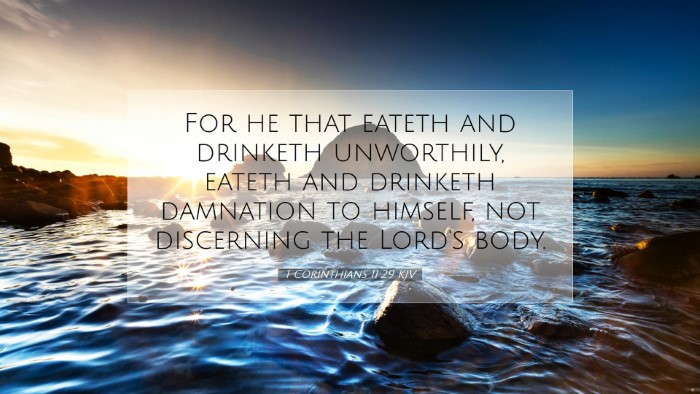Old Testament
Genesis Exodus Leviticus Numbers Deuteronomy Joshua Judges Ruth 1 Samuel 2 Samuel 1 Kings 2 Kings 1 Chronicles 2 Chronicles Ezra Nehemiah Esther Job Psalms Proverbs Ecclesiastes Song of Solomon Isaiah Jeremiah Lamentations Ezekiel Daniel Hosea Joel Amos Obadiah Jonah Micah Nahum Habakkuk Zephaniah Haggai Zechariah MalachiVerse
1 Corinthians 11:1 1 Corinthians 11:2 1 Corinthians 11:3 1 Corinthians 11:4 1 Corinthians 11:5 1 Corinthians 11:6 1 Corinthians 11:7 1 Corinthians 11:8 1 Corinthians 11:9 1 Corinthians 11:10 1 Corinthians 11:11 1 Corinthians 11:12 1 Corinthians 11:13 1 Corinthians 11:14 1 Corinthians 11:15 1 Corinthians 11:16 1 Corinthians 11:17 1 Corinthians 11:18 1 Corinthians 11:19 1 Corinthians 11:20 1 Corinthians 11:21 1 Corinthians 11:22 1 Corinthians 11:23 1 Corinthians 11:24 1 Corinthians 11:25 1 Corinthians 11:26 1 Corinthians 11:27 1 Corinthians 11:28 1 Corinthians 11:29 1 Corinthians 11:30 1 Corinthians 11:31 1 Corinthians 11:32 1 Corinthians 11:33 1 Corinthians 11:34

